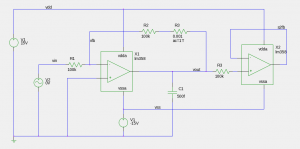IEEE Swiss CAS/ED Workshop 2014 on Memristive Devices and Neuromorphic Applications
(http://www.ieee.ch/chapters/cas-ed/cas-ed-news/2014-11-27/)
Date: Friday 28 Nov, 2014
Time: 10:00-19:00
Place: UZH, Irchel Campus, Room Y35 F51 (morning session) Y10 03/04 (afternoon session), Building 55 Foyer (apero). Closest tram stop is Tram 9/10 at Irchel. See here for University of Zurich map.
At this one day workshop, experts in Memristive Devices and Neuromorphic Applications will present their recent advances in Circuits and Systems and Electron Devices. The workshop includes a demo and poster session, and a concluding apero.
Resistive memory devices also known as "memristors" are being actively researched to address the widening gap in performance between storage and the rest of the computing system. There is also a potential for such devices to serve simultaneously as both memory and logic, or even as components of a neuromorphic computing hardware based on brain architecture. The investigation of the use of these devices in a host of applications in science and technology are currently being explored. Swiss developers are very active in these fields and the area of neuromorphic computing. This one-day IEEE workshop brings them together with potential research and development partners and end users in industry and academia.
The presentations will cover a range of topics focus on memristive technology and possible computing applications. A poster session including demonstrations of relevant technologies will also be offered.
All presentations will be in English.
Registration: Registration is open to the public but is mandatory. There will be a registration fee which includes lunch and apero. Please register at www.iniforum.ch/casedws14/registration.php.
Registration will be closed by 14.11.2014 or when the maximum number of places is reached. Registration must be cancelled by 21.11.2014 for refund.
Posters and Demos registration: We invite demos and posters. Poster or demo presentations must also register for the workshop (see above). Posters or demos must be registered so that we can plan space for them. Please use this demo and registration form to register.

